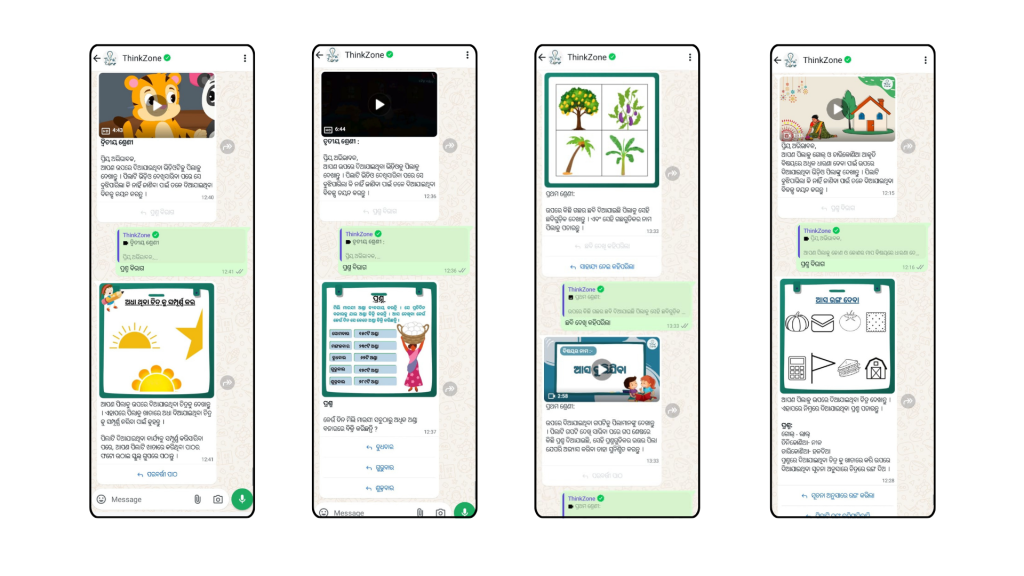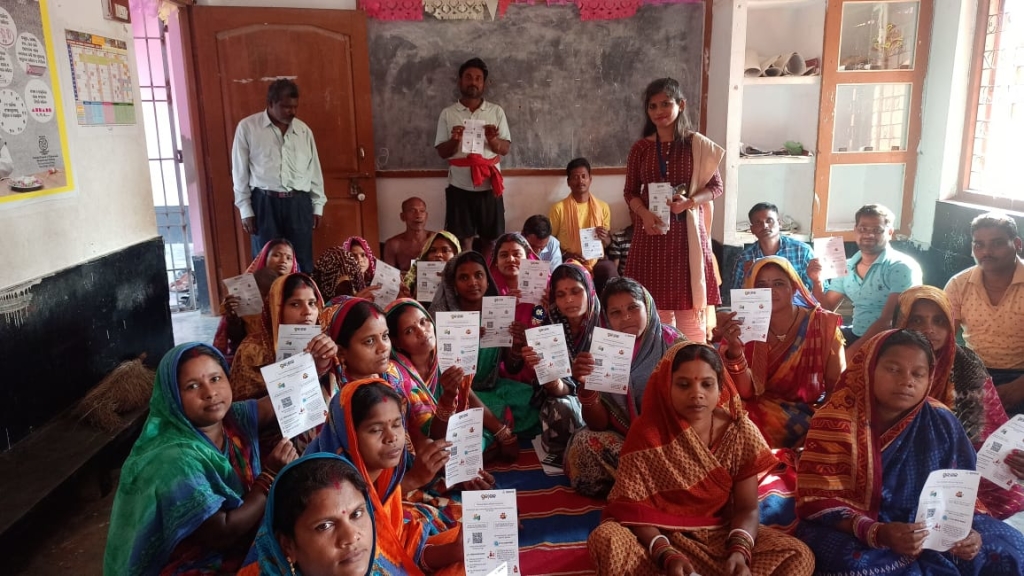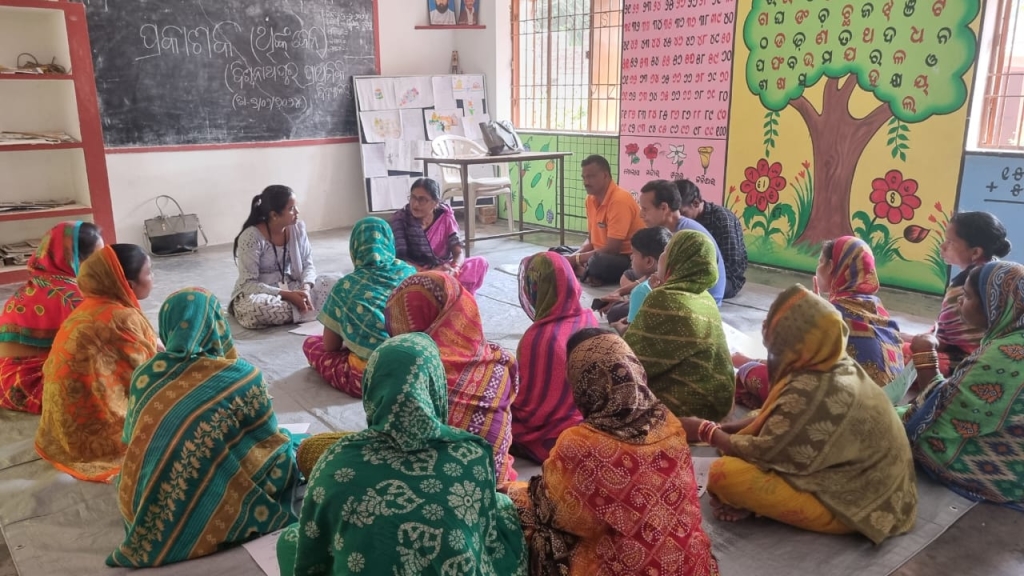The Indian EdTech industry has seen many innovative models emerge over the last few years and it continues to remain a vibrant space for growth and innovation. Along with traditional models such as D2C (Direct to Consumer) and B2B (Business to Business), we are seeing unique models directed through the B2G (Business to Government) pathways wherein EdTech partners now reach out to students, parents and teachers via government schools, as well as community models wherein they reach out to end users through volunteers (youth and women from underserved communities).
While each model has its unique strengths, a model directed through a government pathway helps enable potentially large-scale adoption and the opportunity to get embedded within the government monitoring system which can ensure institutionalisation of a programme for long-term sustainability. Through the LiftEd EdTech Accelerator, ThinkZone has been able to explore a strong B2G pathway that can scale and lead to high impact for a wide user base in a cost-effective manner.
ThinkZone’s Journey
Since its inception in 2015, ThinkZone’s focus has expanded beyond early childhood education to primary education, involving community tutors and establishing learning centres. It is currently implementing 2 programmes — the EmpowerEducators programme and the PRAKASHAK programme — impacting 8,000 tutors and 1,00,000 children in Odisha.
- The EmpowerEducators programme supports community tutors (youth and women from underserved communities) and teachers from low-cost private schools to develop 21st-century skills and proficiency in teaching-learning pedagogy. It follows a blended approach of implementing offline-enabled mobile application solutions in Odia, online mentorship and in-person training to assist tutors to become effective facilitators and support children in developing foundational skills.
- The PRAKASHAK (Parent’s Remote Assistance and Knowledge Support for Holistic Advancement of Kids) programme provides parents with instructional learning activities and social nudges by leveraging accessible, low-technology solutions such as automated calls, text messages, IVRS (Interactive Voice Response System) and WhatsApp.

The programme adopts a strategic approach to engage parents in improving the foundational skills of their children, in partnership with the government and with the support of public schools through PTMs and community engagement.
Here is what parents have to say about the impact of ThinkZone’s PRAKASHAK programme:
Mamina Muduli, mother of Manisha, a grade 1 student at Otarakera School, Satyabadi, Odisha says, “Initially, I found teaching at home difficult and preferred tuition. But after ThinkZone’s demonstration of activity-based learning with home resources, I used examples like chapati and puri to teach concepts. My child enjoyed it, and I was delighted with the results.”

Jharana Barik, the parent of Amit, a grade 2 student at Kadua Primary School in Satyabadi, Odisha, shared her experience saying, “At first, I was unsure when the school informed me about the PTM organised by ThinkZone. But during the demonstration, I felt confident I could be involved in my child’s education. By following the activities on WhatsApp and practising them at home, I realised I could truly contribute.”
Transitioning from a Community Model to a B2G Pathway
During the pandemic in 2020-21, the PRAKASHAK programme was piloted for six months in three districts (Cuttack, Khorda and Bhadrak) of Odisha by collaborating with the government which positively impacted over 3,500 children. A third-party randomised controlled trial (RCT) evaluation1 found significant improvements with a 12.3% increase in Mathematics and a 13.8% increase in Odia over average baseline scores in six months among children in primary grades (grades 1 to 5). Based on the positive results, the scope of the programme expanded across all blocks in Cuttack during the COVID-19 induced school closures. Since the B2G pathway helped expand student outreach rapidly and in a cost-effective manner which also engaged parents meaningfully, ThinkZone began to pivot the home-learning programme, PRAKASHAK, from a community-led model to a B2G pathway where they reach out to users through government schools.
When schools reopened in February 2022, ThinkZone continued its existing home-learning model of PRAKASHAK through community tutors reaching nearly 40,000 children. However, the long-term viability of the community model remained a challenge since it was resource-intensive.
The onboarding and registration of parents took a long time in the community tutor model. While in the community-led model, each community tutor could only assist a maximum of 10-15 students, in the B2G model, teachers were directly involved in getting parents onboarded and registered on the ThinkZone platform, allowing the EdTech solution to reach over 13,000 children within two months. The community tutor model also required regular financial incentives for ongoing parental support, which increased the implementation costs, making it not sustainable to reach a large number of children and parents. Lastly, managing two separate programmes (EmpowerEducators and PRAKASHAK) with differing implementation processes and on-ground requirements became difficult.

Unlocking Scale through B2G Pathway
Scaling the PRAKASHAK programme through a district was time-intensive. However, ThinkZone successfully unlocked a partnership with the Puri District Education Office in 2023 and has been able to reach over 12,000 parents and children in two blocks of the Puri district in Odisha. The following are some of the insights and learnings from scaling an EdTech programme via a B2G pathway:
- Following a Collaborative Approach: from designing the programme to its implementation, ThinkZone focused on working within the existing system to support teachers in bridging the communication gap between school and home.
- Adopting a Bottom-up Approach on the Ground: while the initial communication required a top-down approach, daily activities and parent-teacher meetings (PTMs) benefited from a bottom-up approach ensuring continued engagement and effective sharing of information.
- Blended Methodology in Implementation: combining remote instructions via calls, SMS and WhatsApp messages with in-person PTMs proved effective for retention and engagement of parents.
- Developing Well-structured Reporting Mechanisms: sharing detailed monthly reports with stakeholders, both offline and online (through WhatsApp), helped ensure a robust monitoring layer amongst all stakeholders.
- Creating a Rewards System: monthly appreciation posts in parents’ WhatsApp groups and teacher appreciation videos shared at block and cluster levels helped keep the morale high for all and recognised successes.
By adapting to the context, ThinkZone managed to build credibility among parents and other stakeholders through simple social rewards or appreciation posts. This resulted in 36% of parents attending the first PTM and 83% of parents enroling in the programme, spending an average of 40 minutes per week supporting their children’s learning.
Way forward
As ThinkZone looks toward scaling the intervention through a government-led pathway in two districts in Odisha as part of the LiftEd EdTech Accelerator, certain challenges have been identified in securing teacher support and engaging parents effectively.
While teachers continue to support the PRAKASHAK programme, it is essential to involve them actively to ensure long-term sustainability and prepare for a state-wide rollout of the programme. ThinkZone also hopes to refine the programme design through increased nudges, rewards and integration of parental engagement into the school curriculum in order to make parents pivotal learning agents in their children’s education.
Relevant studies have found the crucial role of parents in a child’s learning journey. A recent study by Central Square Foundation, Bharat Survey for EdTech (BaSE) 2023 found that 74% of children in K-12 use their parents’ smartphones for over 30 minutes a day. Given the growing trend of device penetration in India and with children spending more time on smartphones, there is a great chance to supplement in-school learning with practise and learning at home, especially in the context of the NIPUN Bharat Mission for achieving foundational literacy and numeracy (FLN).
ThinkZone’s journey is a testament to how innovative and cost-effective EdTech programmes can adapt and learn to arrive at a model that can be scaled across government schools in India, as we strive to collectively make all school children in Bharat NIPUN by 2025.
—xx—
To learn more about the LiftEd EdTech Accelerator, click here.
